Chairs
- Ashutosh Dutta, Johns Hopkins University, Applied Physics Laboratory (APL), USA
- Eman Hammad, Texas A&M University RELLIS, USA
- Güneş Karabulut-Kurt, Polytechnique Montréal, Canada
- Ersi Chorti, ETIS UMR 8051, CYU, ENSEA, CNRS
Topical abstract
5G introduces a paradigm shift and fundamental transformation of digital wireless connectivity by converging pillars of softwarization, virtualization, and wireless networks. This convergence highlights the increased threat surface of 5G networks and the potentially severe impacts of sophisticated cyber incidents. 5G is positioned to enable much of our critical infrastructures, emergency networks, industrial and automation networks, in addition to supporting the ever-increasing mobile Internet of things (mIoT) footprint. It is critical that all stakeholders join efforts to embed security and privacy requirements in the evolving 5G architecture. To ensure the digital trustworthiness of end-to-end (E2E) 5G networks, we need to carefully investigate and mitigate cyber risks on the different layers and components. The sessions included in this topical session will aim to present a state-of-the-art perspective on some of the following topics:
- Security of Software-Defined Networks (SDN)
- Security of Network Functions Virtualization (NFV)
- Network Slicing Security
- Optimization and Orchestration Security, including AI/ML Security
- Fog/Edge Computing Security
- Cloud Security
- API Security
- Supply Chain Security (hardware and software)
- Data Security & Privacy
- Open Source Security
- Trust Metrics for E2E Security
| Speaker | Affiliation | Time (EDT) | Duration (Minutes) |
| Ian Oliver | Nokia Bell Labs | 2:00 PM | 20 |
| David Simpson | AiRANACULUS | 2:20 PM | 20 |
| Brian Daly | ATT | 2:40 PM | 20 |
| Arupjyoti Bhuyan | Idaho National Lab | 3:00 PM | 20 |
| Break | |||
| Andre Noll Barreto | Barkhausen Institut | 3:20 PM | 20 |
| Kapil Sood | Intel | 3:40 PM | 20 |
| Marcus Wong | Futurewei | 4:00 PM | 20 |
| Break | |||
| Michael Condry | Clinic AI | 4:30 PM | 20 |
| Michael Enright | Quantum Dimension, Inc. | 4:50 PM | 20 |
| Julia Urbina-Pineda | CyberIIOT | 5:10 PM | 20 |
| Bharat, Rawalkshatriya | Gannon University | 5:30 PM | 20 |
| Anand Prasad | Deloitte Tohmatsu Cyber (DTCY) | 5:50 PM | 20 |
| Mithun Mukherji | Nanjing University | 6:10 PM | 20 |
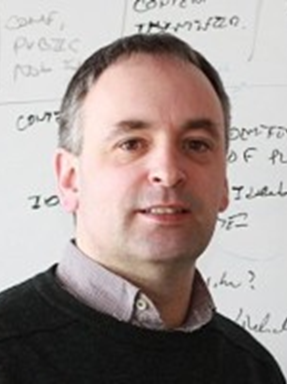 Ian Oliver
Ian Oliver
Dr. Ian Oliver is a Distinguished Member of Technical Staff at Bell Labs working on Trusted and High-integrity Cyber Security applied to 5G and future 6G mobile technologies, Edge and IoT devices with particular emphasis on the safety-critical domains, such as railway, medical and aerospace.
He holds a visiting position at Aalto University Neurobiology Dept. working on application of cyber security and trust techniques to future medical applications.
Other areas of active research include privacy engineering and various topics related to information theory, measurement of privacy and semantics. He is the author of the book “Privacy Engineering: A data flow and ontological approach” and holds over 200 patents and academics papers.
 Dr. Anand R. Prasad, Partner, Deloitte Tohmatsu Cyber (DTCY) LLC
Dr. Anand R. Prasad, Partner, Deloitte Tohmatsu Cyber (DTCY) LLC
Talk title: “5G and Beyond: Securely operating the cloud-native mobile network”
Bio: Dr. Anand R. Prasad is a global executive for information- and cyber-security who has delivered security solutions for 5G, 4G, network function virtualization, SOC, WiFi, mobile devices, enterprise and GRC processes from scratch for secure connectivity towards a safer society. Anand has globally propagated the concept of security as the business driver with security being holistic as well as inherent to a system while considering business and architectural implications. Anand is Partner at Deloitte Tohmatsu Cyber (DTCY) where he leads connectivity security. Prior to which he was Founder & CEO of “wenovator LLC”; acquired by DTCY, a global provider of cybersecurity services and consulting with top-tier clients right across the telecommunications industry. He was also a Senior Security Advisor of NTT DOCOMO, providing advise on all aspects of cybersecurity for the company, Advisor to CTIF and Advisor to GuardRails. Anand was Chief Information Security Officer (CISO), Board Member, of Rakuten Mobile, the world’s leading MNO with the very first cloud-native 4G & 5G network implementation. As CISO of Rakuten Mobile Anand led all aspects of enterprise and mobile network security from design, deployment to operations. With over 20 years of experience, Anand has also held key roles in NEC, Genista, Lucent Technologies and Uniden. He is an innovator with over 50 patents, a recognized keynote speaker (RSA, GWS, MWC, ICT etc.) and a prolific writer with 6 books and over 50 peer reviewed publications.
Anand was the Chairman of 3GPP SA3 where, among others, he led the standardisation of 5G security. He was governing council member of TSDSI, is governing body member of GISFI, Fellow of IET, Fellow of IETE and Certified Information Systems Security Professional (CISSP). Anand is Editor-in-Chief of the Journal of ICT Standardization and Co-Founder as well as Co-Editor of the Cybersecurity Magazine. He did his ir (MScEE) and PhD from Delft University of Technology, The Netherlands.
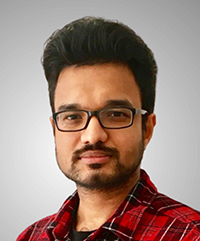 Mithun Mukherjee
Mithun Mukherjee
Title: Security and Privacy Challenges in Intelligent Edge Computing
Abstract: Edge computing has already shown its potential benefits to support the delay-sensitive and computational-intensive service provisioning in Internet of Things (IoT)-based environment. Subsequently, artificial intelligence is expected to enhance the cognizance and the intelligence of edge computing, resulting a new paradigm, intelligent edge computing. Intelligent edge computing is the use of artificial intelligence and machine learning algorithms for data analysis at the edge layer. Using such data analysis techniques at the edge layer allows the end-devices to obtain faster insights and feedback that enhances their operation. The intelligent edge computing paradigm is taking its shape where we envision it as: an edge computing system that realizes the computing, communication, and caching resources using data analytic platform and harvesting the potential benefits of artificial intelligence to improve the system utility. This talk will focus on malicious attacks targeting intelligent engines of edge computing, that offset the gains from intelligent systems and lead to compromise the intelligent edge computing system.
Bio: Mithun Mukherjee is an Assistant Professor with the School of Artificial Intelligence, Nanjing University of Information Science and Technology, Nanjing, China. He was a specially assigned researcher and assistant professor with the Guangdong Provincial Key Laboratory of Petrochemical Equipment Fault Diagnosis, Guangdong University of Petrochemical Technology, Maoming, China, from 2015 to 2020. His research interests center around the Internet of Things, mobile edge computing, Tactile Internet, and ultra-reliable low-latency communications. He has been a guest editor for IEEE Internet of Things Journal, IEEE Transactions on Industrial Informatics, ACM/Springer Mobile Networks and Applications, and Sensors. He is a regular reviewer/lead guest editor for many prestigious journals and conferences, serves as the TPC member/chair for various conferences, and organized many special sections/workshops in prestigious international conferences. He completed his Ph.D. from the Indian Institute of Technology Patna, Patna, India, in 2015. He is a senior member of IEEE.
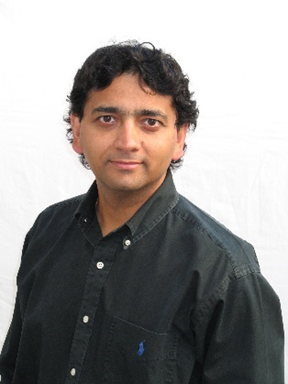 Kapil Sood
Kapil Sood
Kapil Sood is a Principal Engineer and Chief Security Architect for Intel’s Network and Edge Group, driving platform security technologies and research, and setting strategic architecture direction for Intel’s Networking Cloud, 5G and Intelligent Edge business groups. Kapil has 25+ years of technology leadership experience, spanning Mobile and Cloud Crypto-systems, Intel CPU and platform architecture, and startups. Kapil has helped define security specifications at ETSI NFV and authored IEEE 802.11 standards. Kapil earned MS (CS), MBA, and BS (CS), with 100 patents issued, publications, and open-source contributions.
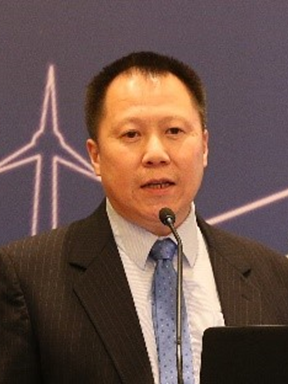 Marcus Wong
Marcus Wong
Marcus has over 20 years of experience in the wireless network security field with AT&T Bell Laboratories, AT&T Laboratories, Lucent Technologies, and Samsung’s Advanced Institute of Technology. He holds Certification of Information System Security Professional (CISSP) from the prestigious International Information Systems Security Certification Consortium (ISC2).
Marcus has concentrated his research and work in many aspects of security in wireless communication systems, including 2G/3G/4G/5G mobile networks, Personal Area Networks, and satellite communication systems. Marcus joined Futurewei Technologies (a subsidiary of Huawei Technologies) in 2007 and continued his focus on research and standardization in 3GPP, WiMAX Forum, IEEE, and IETF security areas. As an active contributor in the Wireless World Research Forum (WWRF), he has shared his security research on a variety of projects contributing toward whitepapers, book chapters, and speaking engagements.
In the past, Marcus has held elected official positions in both WWRF and 3GPP, serving as the vice-Chairman of WWRF Working Group 7 (Security and Trust working group) from 2007 to 2012 and as the vice-Chairman of 3GPP SA3 (Service & System Aspect, Security Group) from 2009 to 2011 respectively. He also served as guest editor in the IEEE Vehicular Technology magazine. As an active author, he also has published book, book chapters, a number of journal papers and whitepapers in leading publications, including that of the Journal of Cyber Security and Mobility and Journal of ICT Standardization. In addition, he has numerous patents granted and/or pending.
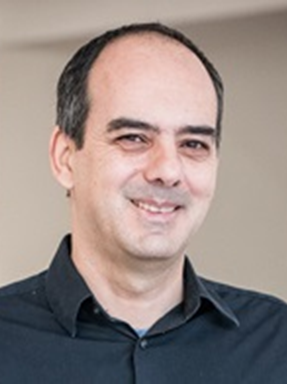 Andre Noll Barreto
Andre Noll Barreto
André Noll Barreto received a M.Sc. from the Catholic University (PUC-Rio), Rio de Janeiro, Brazil, in 1996, and a Ph.D. from the Technische Universität Dresden, Germany, in 2001, both in Electical Engineering. Since then, he held several positions with academia and industry in Switzerland (IBM Research) and Brazil (Claro, Nokia Technology Institute/INDT, Universidade de Brasília, and Ektrum). In 2018 he joined the Barkhausen Institut, Dresden, Germany, where he is currently researching wireless communications for a trustworthy Internet of Things. His current research topics are Physical Layer Security and Joint Communications & Sensing.
 Brian K. Daly, Assistant Vice President, AT&T Services, Inc.
Brian K. Daly, Assistant Vice President, AT&T Services, Inc.
As Assistant Vice President for Standards & Industry Alliances for AT&T, Brian oversees AT&T’s strategy and leadership in global industry standards. Brian is a technology visionary and thought leader with knowledge of the global standards industry landscape/leadership. Brian has a broad technology perspective including 5 to 10-year trends, with focus on emerging technologies for 5G and beyond including public safety/mission critical services for FirstNet; earthquake early warning and wireless emergency alerts; C-V2X and UAS/UAVs; cybersecurity, NSEP, and critical infrastructure protection. Brian is engaged in programs with the DHS, DISA, and DoD, and is a leading contributor to the Alliance for Telecommunication Industry Solutions (ATIS) Board, TOPS Council and Standards Committee initiatives, resulting in the implementation of key industry standards. Brian is on the Executive Committee of the National Spectrum Consortium and holds appointments to the FCC’s Technological Advisory Council (TAC) and Communications Reliability, Security, and Interoperability Council (CSRIC). Brian also is a member of the FBI’s Infragard partnership. Brian holds Board positions on the National Public Safety Communications Council (NPSTC) and the IEEE International Standards and Technology Organization (IEEE-ISTO). Brian’s industry leadership roles include Co-chair of the Next G Alliance Steering Group, co-chair of the O-Ran Alliance Standards Development Focus Group, Chair of the GSM Association’s North American Fraud Forum and Security Group, and former co-chair of the ANSI Unmanned Aircraft Systems Standardization Collaborative Critical Infrastructure & Environment working group.
Brian received the B.S.E and M.S. degrees in electrical engineering from Arizona State University with a focus on communication systems and advanced electromagnetic engineering. Brian is the AT&T coordinator for the Department of Homeland Security SHAred RESources (SHARES) High Frequency (HF) Radio Program. Brian received the ATIS President’s Award and the ANSI Meritorious Service Award in recognition of his career creating standards across the communications spectrum including 3GPP, and the NG911 Institute Industry/Private Sector Award for his leadership in emergency communications. Brian holds over 180 issued patents in telecommunications, public safety, and cybersecurity.
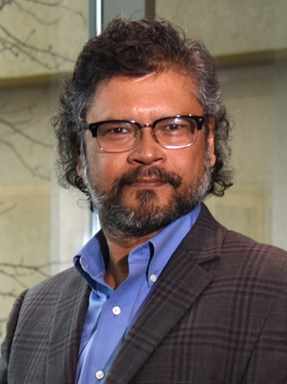 Arup Bhuyan
Arup Bhuyan
Bio: Dr. Arupjyoti (Arup) Bhuyan is a wireless researcher in the Idaho National Laboratory (INL) and the Technical Director of the INL Wireless Security Institute. The focus of his research is on secure implementation of future generations of wireless communications with scientific exploration and engineering innovations across the fields of wireless technology, cybersecurity, and computational science. Specific goals are to lead and focus wireless security research efforts for 5G and Beyond with national impact, to secure communications for a nationwide unmanned aerial system and for 5G spectrum sharing with distributed scheduling. Arup has extensive industry experience in wireless communications from his work before he joined INL in October, 2015. He received his Ph.D. in Engineering and Applied Sciences from Yale University. He is a senior member of IEEE.
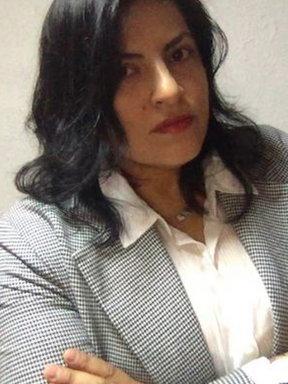 Julia Urbina-Pineda
Julia Urbina-Pineda
Title: 5G Security for ICS/SCADA & IIoT
Bio: Julia, begins her career in Information Security from her research work to graduate in Electrical and Communications Engineering from UDLAP (University of the Americas-Puebla): with the title Intrusion Detection Systems in Computer Networks. She continued her training at the Electronics and Telecommunications Center (CETEC) of the TEC Monterrey campus, where she was awarded as an Honorary Member of IEEE – Etta Kappa Nu (HKN) in 2013. Since 2017, Julia founded CyberIIoT (cybersecurity for the Industrial IoT) a scientific consulting services company that offer security architecture, analysis of the risks and maturity of the cybersecurity of the Organizations. She has been developed as a statekeholder within the Roadmap group Security 5G of IEEE Future Networks where the first edition was published on the recommendations and advances of cybersecurity for the 3GPP standard (5G networks) in release 16 and 17.
She was appointed Executive Director of 5G security and Industry 4.0 for IoTSI LATAM, in order to raise awareness about IoT security with the use of the IoT security Framework for private 5G networks in companies and industry. She also obtains the SCCISP (Smart Cities and Critical Infrastructure Security Professional) certification and creates the School of Cybersecurity Training by CyberIIoT , which is the authorized center for SCCISP certification for Latin America. She was named Cybersecurity Policy Expert by the Global Foundation for Cybersecurity Studies and Research in order to promote locally and globally the use of Cybersecurity policies in all environments. https://www.gfcyber.org/our-team/
In Early 2021 she was appointed as a President for Chapter of the Communications Society by IEEE Puebla Section, where one of her objective is to promote the security of information in mobile and wireless communications. She was awarded a grant from the Francisco Coros Program for the Strategic and Technical Vision of 5G Mobile Communications course by the Polytechnic University of Madrid and Qualcomm.
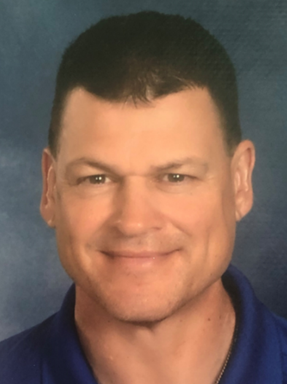 Michael Enright
Michael Enright
Bio: Dr. Michael A. Enright is the CEO and President of Quantum Dimension, Inc. and has 30 years of experience in security, Artificial Intelligence (AI) and Machine Learning (ML), embedded computing, image and video processing, RF communication and more. Dr. Enright has a Ph.D. in Electrical Engineering from the University of Southern California (USC) thru his work with the Signal and Image Processing Institute (SIPI) at USC, an M.S. in Electrical Engineering from the Illinois Institute of Technology, an M.S. in Mechanical Engineering from the University of Missouri-Columbia and a B.S. in Aeronautical and Astronautical Engineering from the University of Illinois at Champaign-Urbana and is a Senior Member of the IEEE.
For the past 15 years Quantum Dimension, he has led a team of engineers in the company’s technology developments, which includes AI/ML, RF communication, software-defined radio (SDR) and navigation using advanced embedded technologies that include digital signal processor (DSP), graphics processor unit (GPU) and field-programmable gate array (FPGA). Prior to founding Quantum Dimension, Dr. Enright was a researcher with the Signal and Image Processing Institute (SIPI) and the Integrated Media Systems Center (IMSC) at USC, where he worked on multimedia cross-layer communication techniques. Further back, Dr Enright: led the development of the video compression architecture for Boeing Digital Cinema with MPEG-2, MPEG-4, and JPEG2000 coding algorithms, acted as an information security lead for network security, and was responsible for the design and development of a space-based phased-array antenna subsystem at Hughes Space and Communication. Prior to Hughes, Dr. Enright worked at Motorola Cellular on the handset design for the Iridium satellite system. He began his signal processing career at AT&T Bell Laboratories in Naperville, Illinois where he developed DSP software for AT&T’s 5ESS telephone switching systems.
Dr. Enright has been an Adjunct Professor in the Electrical Engineering Department at USC, where he taught both undergraduate and graduate courses in image and signal processing, digital communications, and wireless communication systems design.
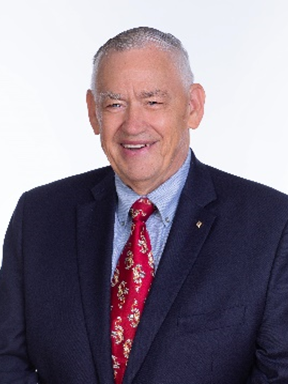 Michael Condry
Michael Condry
Michael is currently leading a consulting firm on technology future directions in business with a recent focus on Digital Health technologies and their data. He is also the Chair, of the Advisory Board for ClinicAI, Inc.. Michael’s career spans both academic and industry positions, mostly in industry. This includes senior leadership roles in Intel, Sun, and AT&T Bell Laboratories. At Intel, Michael retired after being the Chief Technical Officer in the Client Division. His technical leadership plus efforts in technical staff development at Intel awarded him and his team the prestigious Intel Quality Award in 2015. At Sun he led the development of UNIX standards as well as improving the architecture engineering. At AT&T he was one of the architects for the BellMac 32 processor, lead software projects including a Real-Time Unix design and Unix System V file system. He held teaching and research positions at Princeton University and University of Illinois, Urbana-Champaign. At University of Illinois, he served on (then) Senator Al Gore’s Internet committee. His background includes projects in computer architecture, software, firmware, operating systems, networking, IoT, internet applications, standards, computer security and recently digital health technologies. Michael has multiple patents.
Michael, an IEEE Life Fellow, has many years engaging in the IEEE. He is an IEEE Industrial Electronics Society (IES) Senior AdCom member, Past President of IEEE Technology and Engineering Management Society (TEMS), member of Computer, Consumer Technologies, and Engineering Medicine and Biology Societies. He started the IEEE Industry Forum program that is used in many IEEE societies that establishes a bridge between industry and research with the IEEE programs. Michael has organized many IEEE conferences and contributed numerous papers on technology and technical management.
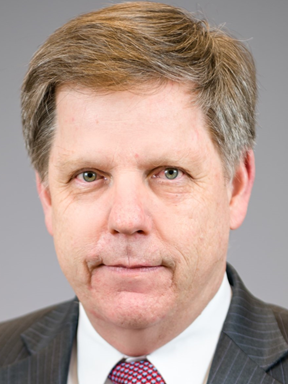 David Simpson
David Simpson
David Simpson has influenced U.S. National Defense and Homeland Security policy for over thirty years. He currently a Partner at DeepWaterPoint, specializing in national defense, public safety, and emerging technology. He is a Professor at Virginia Tech, leading Cybersecurity Risk and Technology Leadership graduate studies for Pamplin College of Business. He previously served as Chief of the Federal Communications Commission’s Public Safety and Homeland Security Bureau from 2013 to 2017. As Bureau Chief, he oversaw public safety, emergency management, communication resiliency, cybersecurity, and disaster preparedness activities for over 30,000 commercial companies in the telecommunications sector. Rear Admiral Simpson served in the U.S. Navy in leadership positions at sea and around the world, for over thirty years. As a Flag Officer he served as Director of Navy Networks, Vice Director of the Defense Information Systems Agency (DISA) and Director of Communications and Information Services in Iraq. He had Space, Combat Systems, and Information Technology assignments in multiple countries around the world. He served as a senior delegate to the ITU World Radio Telecommunications Conference and to the World Conference on International Telecom (WCIT). Rear Admiral Simpson is a graduate of the United States Naval Academy and earned a master’s degree in space systems technology from the Naval Postgraduate School.
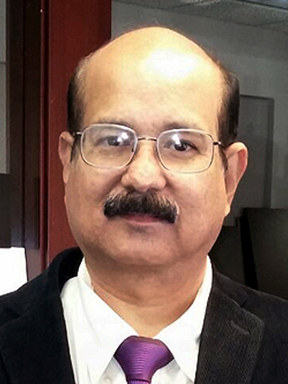 Dr. Bharat S. Rawal
Dr. Bharat S. Rawal
Dr. Bharat S. Rawal is Associate Professor in cybersecurity at Gannon University, USA. His research focuses on network security, cloud computing and security, blockchain, Big Data and analytical modeling, smart grid and health informatics for the development of next-generation cyber defense and operation technologies. He has published hundreds of peer-reviewed conference proceedings, and journal publications, and has one patent pending. He is a member of (ACM, IEEE, IET, etc.). He received his PhD degree IT from Towson University Maryland.
